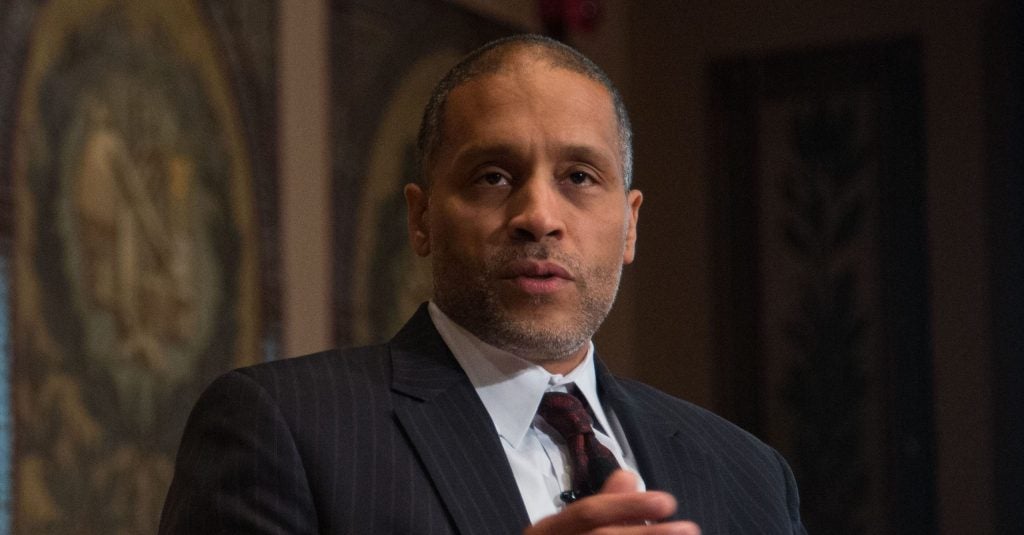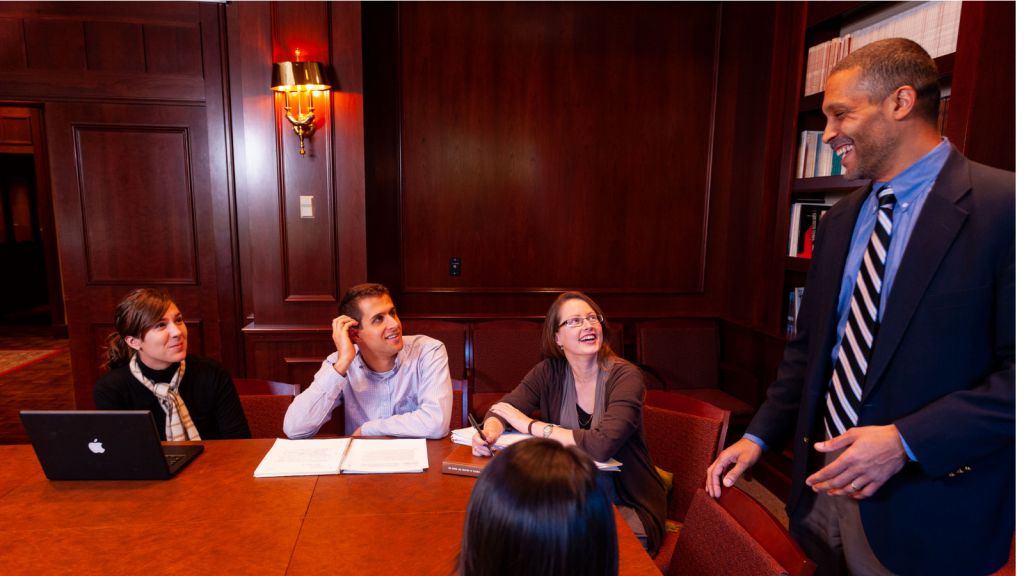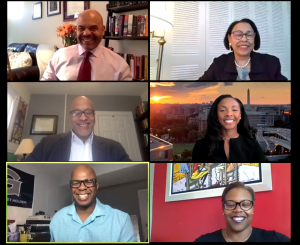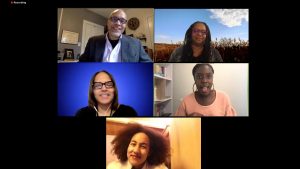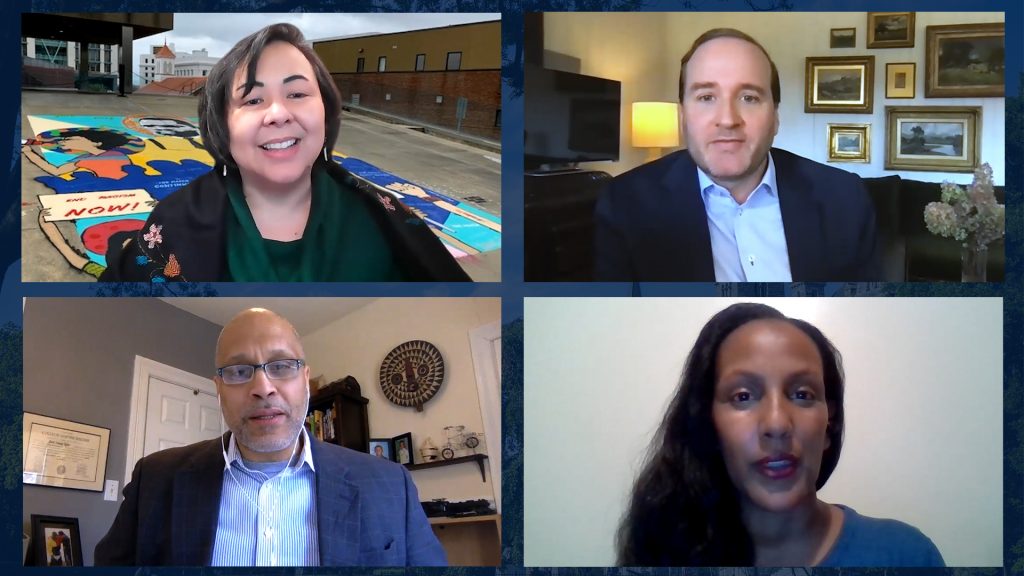This is the first story in a 4-part series exploring efforts to advance diversity, equity and inclusion (DEI) at the School of Foreign Service. Read other stories in this series by clicking on the link(s) at the bottom of this page.
In June 2020, after George Floyd’s murder and the widespread Black Lives Matter protests that followed in its wake, SFS faculty, students, staff and alumni came together to issue a call to center anti-racism at the heart of the school’s mission. “SFS should affirm its commitment to racial justice by making it a foundational principle and enacting concrete changes toward its achievement,” the call read. “SFS should advance scholarship and practices that respond to structural inequalities that have long shaped the modern world. By standing for racial justice, the SFS will inspire commitments to global service that truly reflect the transformative potential of cura personalis.”
That July, in response to the call to action, SFS adopted anti-racism as a core principle and appointed Dr. Scott Taylor as inaugural vice dean for diversity, equity and inclusion (DEI). Taylor took on the role after serving as director of the African Studies program, where he continues to teach as a professor.
The position was created to design and implement measures for better representation and opportunities for underrepresented communities across the school, including in undergraduate admissions and curriculum, school-wide events programming and faculty and staff hiring. Taylor’s office also facilitates collaboration between leaders working on DEI initiatives in other departments, programs, centers and institutes within SFS.
